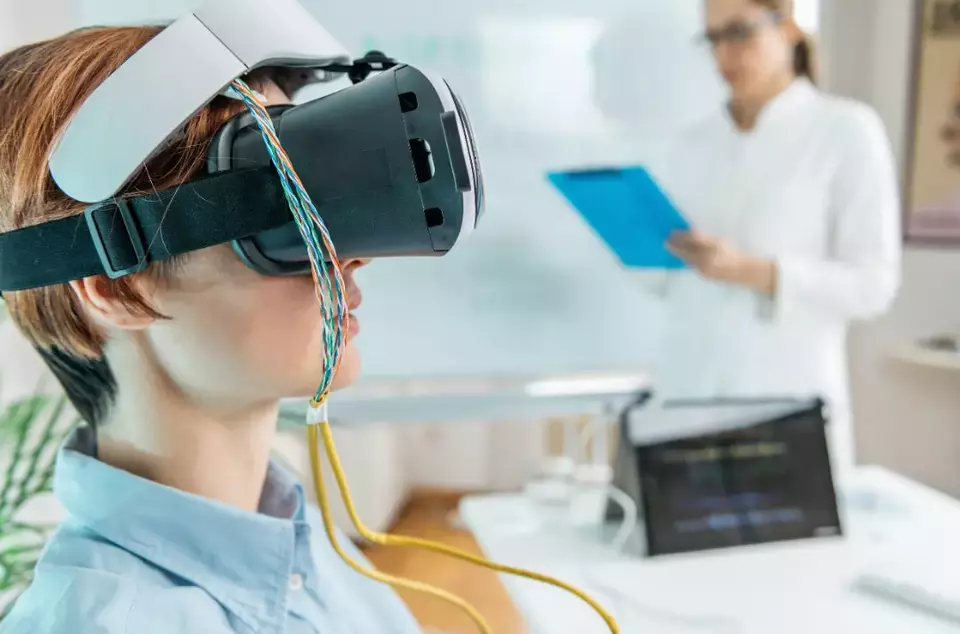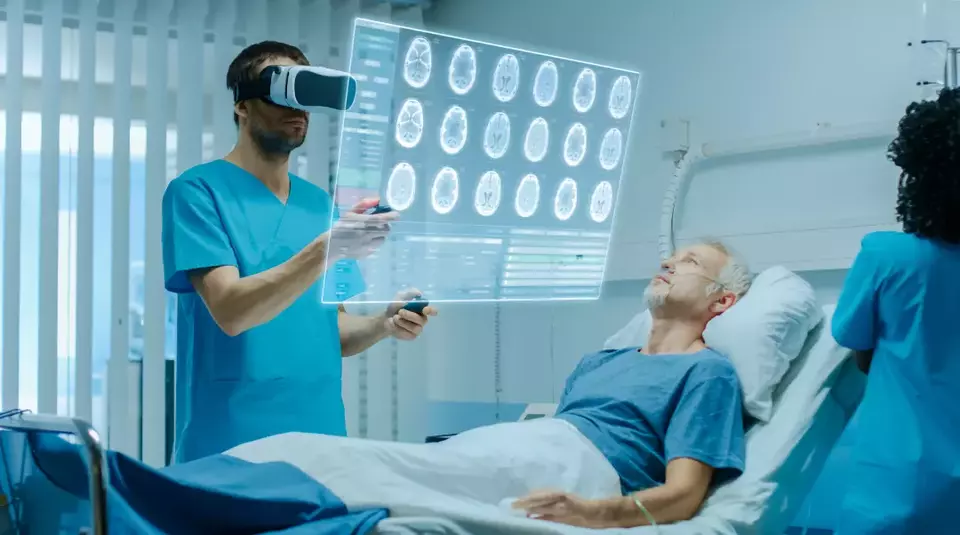Benefits of Virtual Reality (VR) for Healthcare
Posted on July 24, 2023 4 minutes 741 words
Table of contents
- A Powerful Tool for Pain Management
- Revolutionizing Medical Training and Education
- A Beacon of Hope for Mental Health Treatment
- Transforming Rehabilitation and Physical Therapy
- Enhancing Surgical Precision Through Preoperative Planning and Simulation
- Elevating Patient Experience and Understanding
- Conclusion
Once relegated to the realms of science fiction, Virtual Reality (VR) is now a tangible reality, bringing a transformative shift across multiple industries. One sector that stands to reap significant benefits from this immersive technology is healthcare. From revolutionizing patient experiences to facilitating innovative treatment approaches, VR has tremendous potential to reshape healthcare. This blog post delves into the multifaceted benefits of Virtual Reality within the healthcare landscape.
A Powerful Tool for Pain Management
Pain is an all-too-common experience for patients with severe injuries or chronic conditions, and managing it can be challenging. Enter VR technology. By immersing patients in engaging, realistic virtual environments, VR serves as a distraction, effectively diverting the patients’ attention from discomfort and pain.
For instance, SnowWorld, a VR game, has been used in hospitals to help burn victims manage pain during wound care or physical therapy. The results have been impressive, with patients reporting reduced pain levels during their VR sessions. As such, VR represents a non-pharmacological strategy for managing pain and improving patients’ quality of life.

Revolutionizing Medical Training and Education
VR’s immersive and interactive nature has significant implications for medical education. It provides medical students and professionals with a realistic, safe environment to practice surgical procedures, diagnoses, and patient consultations without risking patient safety.
For instance, VR simulations can recreate emergency scenarios where practitioners make time-sensitive decisions. Such training equips healthcare providers with the necessary skills to handle real-life medical emergencies more effectively. Moreover, it allows for mistakes and learning from them, contributing to a richer educational experience.
A Beacon of Hope for Mental Health Treatment
Mental health disorders such as anxiety, depression, phobias, and post-traumatic stress disorder (PTSD) have traditionally been challenging to treat. However, VR is carving a new path in the mental health treatment landscape.
One notable application is in exposure therapy, where patients are gradually and safely exposed to traumatic memories or anxiety-inducing situations, helping them manage their responses and symptoms. Additionally, VR’s immersive environments offer guided mindfulness and relaxation experiences that can help individuals cope with stress and anxiety, providing a novel approach to mental health care.

Transforming Rehabilitation and Physical Therapy
VR has shown tremendous potential in improving physical therapy and rehabilitation outcomes. By incorporating VR into their therapy, patients recovering from strokes, surgeries, or injuries can perform interactive exercises designed to improve strength, balance, and coordination.
For instance, VR platforms like MindMaze provide stroke patients with a virtual environment to simulate the movements of healthy limbs, facilitating brain recovery. Such VR-enabled exercises are not only more engaging than traditional physiotherapy but also allow for precise tracking of progress, making rehabilitation more effective.
Enhancing Surgical Precision Through Preoperative Planning and Simulation
VR technology is transforming surgical planning and training. Surgeons can use VR to visualize complex surgeries in a 3D model based on patients’ medical imaging data. This approach provides a clear understanding of the patients’ unique anatomy and the specifics of the procedure, leading to improved surgical outcomes.
Furthermore, VR surgical simulations allow surgeons to rehearse procedures, enhancing their precision and efficiency. This hands-on approach to training without the risk of patient harm heralds a new era in surgical education and patient safety.
Elevating Patient Experience and Understanding
One less-discussed benefit of VR in healthcare is its potential to improve the patient experience. VR can create 3D visualizations of patients’ conditions or planned procedures, providing them with a clearer understanding of their health situation.
Imagine a patient scheduled for heart surgery being able to explore a 3D model of their heart and view the surgical process step by step. Such VR experiences can alleviate fear and anxiety and empower patients by involving them in their care process.
Conclusion
The potential of Virtual Reality within the healthcare sector is vast and multifaceted. With applications ranging from pain management to surgical planning, VR is redefining traditional healthcare paradigms. As technology continues to advance, VR’s role in healthcare promises to expand even further, leading to more innovative treatment approaches, improved patient outcomes, and a revolution in healthcare delivery.
Disclaimer: While the benefits of Virtual Reality in healthcare are significant, this technology should be used as a supplement to traditional healthcare methods rather than a replacement. Always consult with your healthcare provider before starting any new treatment.
Stay tuned to our blog for more insights into how technological innovations like Virtual Reality are shaping the future of healthcare and beyond.








